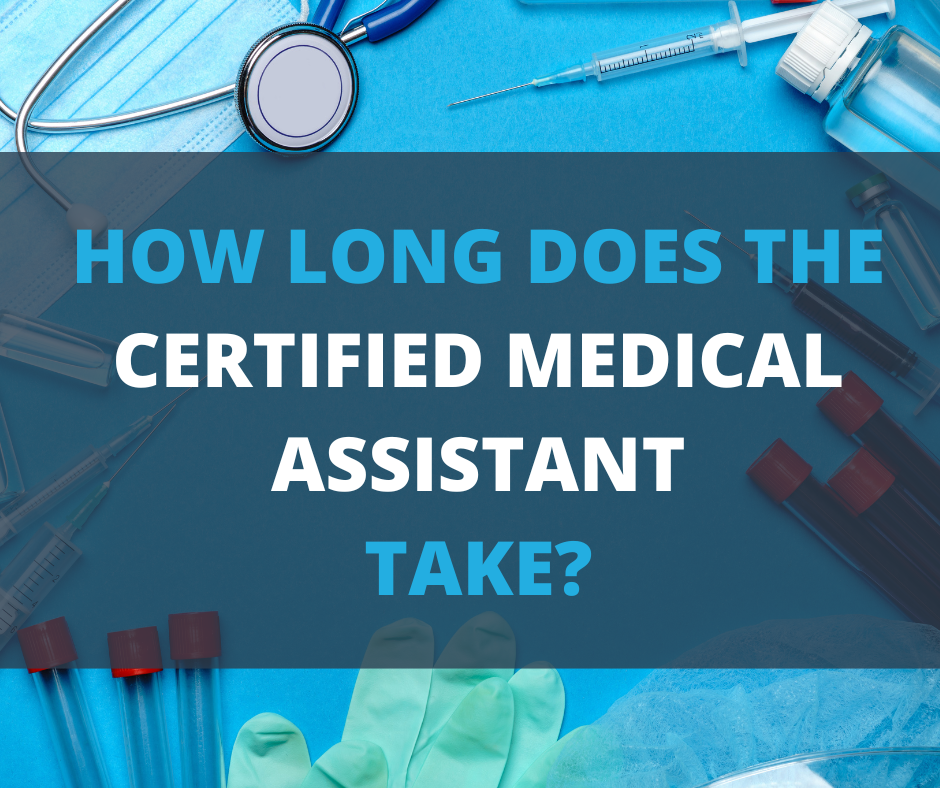How long does it take to get a CMA certification?

Interested in becoming a Certified Medical Assistant (CMA)? You're probably wondering how much time you'll need and what steps to follow. Let's talk about everything you need to know about getting your CMA certification through the American Association of Medical Assistants (AAMA).
Basic Requirements
Before starting your medical assistant training, you'll need a high school diploma or GED. This forms the base for everything else. If you're still in high school, taking classes in biology, chemistry, and computer skills can give you a head start.
Training Program Options: Picking Your Direction
You have two main ways to get the education needed for CMA certification. The first is going to a vocational or technical school, which usually takes 9-12 months to finish. The second choice is enrolling in a community college program, which typically needs about two years and gives you a degree.
The vocational school path tends to be more focused and puts you into the workforce faster. These programs concentrate on the specific skills you'll need as a medical assistant. Community college programs take longer but offer more general education courses and might make switching to other healthcare roles easier later.
What You'll Learn in Your Program
During your medical assistant training, you'll study both clinical and administrative skills. On the clinical side, you'll learn how to:
- Check patient signs
- Give injections
- Draw blood
- Help with medical procedures
- Handle lab specimens
The administrative side teaches:
- Medical billing and coding
- Insurance processing
- Scheduling appointments
- Managing medical records
- Office procedures
Getting Certified
After finishing your training program, you'll take the CMA certification exam. The process is straightforward but needs careful planning.
First, you'll apply for the exam through the AAMA. The application fee is $125 if you're a recent graduate (within the past 12 months) or an AAMA member. If you graduated more than a year ago or aren't a member, the fee is $250.
After your application goes through, you'll have a 90-day window to schedule and take your exam. The test has 180 scored questions (plus 20 unscored practice questions) about clinical, administrative, and general medical assisting knowledge.
Test Day Details
The CMA exam takes about three hours to finish. You'll need to show up at the testing center early with proper ID. The test is on a computer, and you'll get your initial pass/fail results right after finishing.
The exam looks at three main areas:
- Clinical knowledge (makes up about 59% of the exam)
- Administrative knowledge (about 20%)
- General medical assisting concepts (about 21%)
Study Tips for Success
Most people who pass spend several weeks or months getting ready for the exam. Many find it helpful to:
- Try practice tests to spot weak areas
- Use study materials from the AAMA
- Study with classmates
- Make flashcards for medical terms
- Practice clinical procedures regularly
After You Pass
Once you pass, you'll get your official CMA certification within about three weeks. This certification lasts 60 months (5 years). To keep your certification active, you'll need to either finish 60 continuing education units or retake the exam before it expires.
Time Requirements
Here's what to expect for timing:
- High school diploma/GED: 4 years
- Medical assistant training: 9 months to 2 years
- Exam preparation: 1-3 months
- Certification paperwork: 1 month
All together, you're looking at 11 months to 2.5 years after high school, depending on your chosen educational path and how quickly you work through the certification steps.
Perks of Certification
The time investment pays off. Certified Medical Assistants often get:
- Better pay than non-certified assistants
- More job choices
- Added responsibilities at work
- Stronger job security
- More respect from colleagues
Common Hurdles and Solutions
Some students face challenges, but knowing what's ahead helps. Typical issues are:
Money for school and certification - Look into scholarships and payment plans from your school.
Balancing responsibilities - Many students handle work and family while studying. Making a realistic schedule helps tremendously.
Test stress - Regular studying, practice tests, and good rest before the exam can lower anxiety.
Taking Your First Step
Getting your CMA certification becomes easier when you tackle it bit by bit. Focus on each step as it comes, and soon you'll be starting an exciting career in healthcare.
While certification isn't required by law everywhere, more employers want it, and it opens up better career opportunities. Your hard work now can lead to a thriving future in medical assisting.
This story is tagged under...
AAMA CMAInterested in contributing to our blog or partnering with us? Want to share your story of how Crucial Exams helped you? Contact Us .